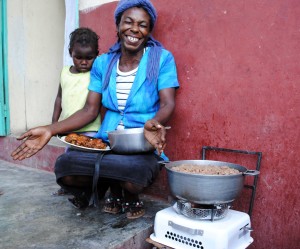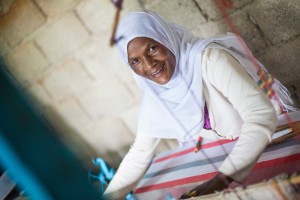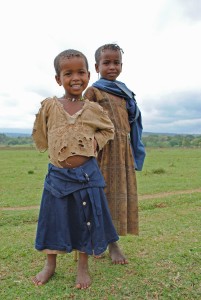On the road toward the upcoming 2015 UN Climate Change Conference, hundreds of organizations have been rallying to bring greater attention to the impact on women of climate change mitigation and adaptation. Women tend to be the most negatively impacted by the effects of climate change, and thus, it is crucial that solutions to this problem be gender conscious. Women must also be included in the development and implementation of those solutions if we are to truly make fundamental changes on the fronts of both climate change and gender equality.
Women account for upwards of 80% of agricultural laborers in the regions of the globe most impacted by climate change. As such, they are carriers and developers of a vast body of knowledge and experience, which is all too often discredited as “primitive” or “unscientific.” However, indigenous and traditional knowledge preserved by women can contribute immensely to climate change adaptation and mitigation. From India to Peru, women farmers utilize permaculture techniques that preserve and nourish soil and grow and raise heirloom varieties of crops and livestock that are more adaptable to environmental fluctuations, among countless other practices. Many of these practices do not follow conventional farming methods and in some cases are even contradictory to them, but they have proven advantages in adapting to and mitigating climate change. Indigenous and traditional knowledge bases can complement on-going climate change research and women are crucial actors to include, both because they are so often the keepers of this knowledge and because they form such a large part of the agricultural workforce.
Women also largely bear the brunt of food preparation and fuel collection. It is women with whom we largely work in developing and testing new models and programs for our clean-burning ethanol-fueled stoves. Women are also important to the production of the feedstocks used to manufacture ethanol fuel, from knowing the best feedstock crops and how to grow them to being responsible for crops unsold after market, which can  also be used to produce ethanol. Our partners in the Former Women Fuelwood Carriers Association are utilizing their agricultural and entrepreneurial knowledge to produce ethanol at a new distillery in Addis Ababa, sell the fuel they make and CLEANCOOK stoves, and help other women realize environmentally-sustainable energy independence.
also be used to produce ethanol. Our partners in the Former Women Fuelwood Carriers Association are utilizing their agricultural and entrepreneurial knowledge to produce ethanol at a new distillery in Addis Ababa, sell the fuel they make and CLEANCOOK stoves, and help other women realize environmentally-sustainable energy independence.
Women, as caretakers of their families and of the earth, must not be excluded from the development of solutions to cope with and mitigate climate change. Their integration in this process is crucial if we are to hope for sustainable, meaningful success.
By Ellie Rice

